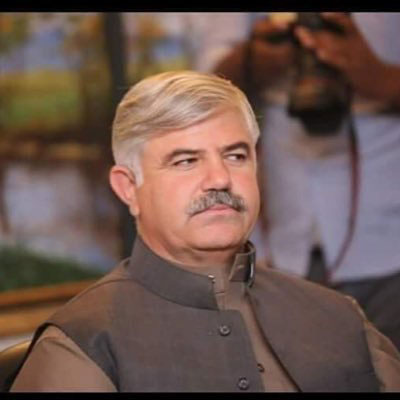Staff Reporter
Peshawar
As an important step to ensure Food Security in the province, the Khyber Pakhtunkhwa government has finalized its first ever Food Security Policy. Final draft of the policy was presented to Chief Minister Khyber Pakhtunkhwa Mahmood Khan in a meeting on the subject matter held here on Wednesday. Agreeing to the draft of the policy, the Chief Minister approved the policy in principle and directed the authorities concerned to present the same in the upcoming meeting of provincial cabinet for final approval.
Similarly, the Chief Minister also accorded approval to the proposed Action Plan to ensure implementation of the policy in its letter & spirit. Besides Senior Member Board of Revenue and administrative Secretaries of all the concerned departments attended the meeting. Briefing the meeting about various aspects of the policy and Action Plan, it was told that the policy aimed at attaining sustainable food security, poverty alleviation and generates employment opportunities through achieving higher sustainable economic growth in the province, and added that short-term, mid-term and long-term plans have been devised to ensure implementation of the policy.
It was further informed that short term plan would be of two to three years duration which will estimately cost Rs.56.00 billion and medium term plan would be of four to seven years with an estimated cost of Rs. 109.00 billion whereas the long term plan would be of eight to ten years to be implemented with an estimated cost Rs. 70.00 billion. Under the short term plan 19 different initiatives/measures have been proposed to increase agricultural products in the province. Similarly, 24 different measures/initiatives including construction of small dams, raising of the existing dams, development of maximum command areas of these dams and others have been proposed under the mid-term plan whereas nine various measures including construction of large dams, cultivation of olive plants at vast scale and others have been proposed under the long-term plan.
Regarding the estimated impacts of these plans, it was informed that implementation of the short-term plan would generate an additional income of Rs. 21.00 billion per annum, the mid-term plan would generate an additional income of Rs. 18.00 billion per annum whereas the long-term plan, on execution would generate an income of Rs. 22.00 billion. The policy clearly defines the roles and responsibilities of agriculture department, irrigation department and other allied departments with regard to achieve the goal of the policy.
It encompasses all the allied sectors of agriculture including food grain, fruits, vegetables, livestock and dairy products, fisheries, oil seeds and others, and provides a comprehensive strategy for increasing these products. The policy also stresses the need of modern research in the field of agriculture and suggests measures to develop linkages amongst the government, academia, private sector and partner organizations. Similarly, the policy proposes the establishment of Agri-Business Development Authority in the province.










